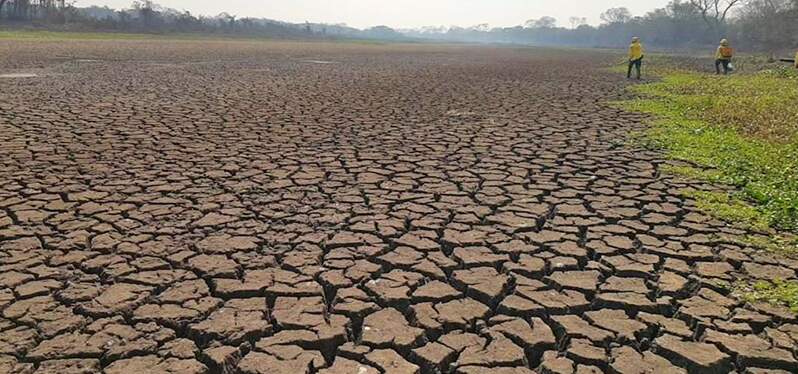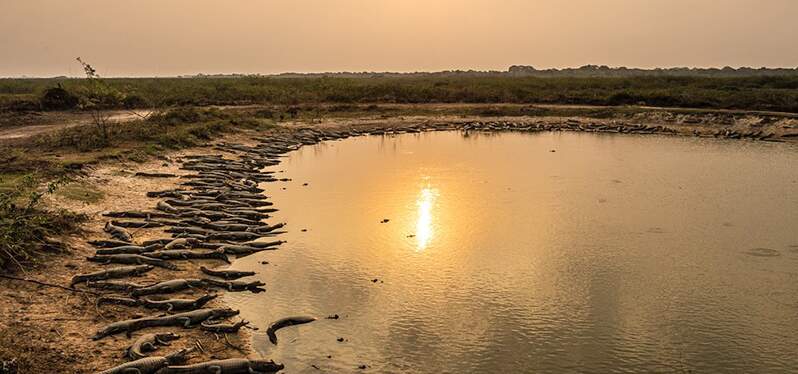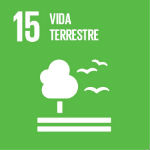Posted in: 11/12/2021
Droughts in the Pantanal may be the cause of the future disappearance of the biome, according to specialists from the National Institute for Space Research (Inpe). One year after the intense fires that hit the region, the Pantanal is still far from recovering from the damage caused by the fire. In 2021, more than 2,300 fires were registered in the Pantanal of Mato Grosso do Sul, which indicates a lower average than the previous year, but still worrying.
Although it is a humid zone, the history of fire in the Pantanal is nothing new, and is aggravated precisely because of the droughts. In 2020, the region experienced its most severe and prolonged dry season, and this is one of the main factors for the increase in wildfires. Added to this were elements such as the area’s low flood level and fire outbreaks. As a result, the Pantanal lost more than 30% of its area to fires this year alone.

Besides the more immediate concern with large fires, droughts bring a long-term concern of frightening proportions: the disappearance of the biome. This is what Inpe’s research points out, carried out in partnership with the Universidade Estadual Paulista (Unesp), with support from FAPESP and the Climate Change Research Program (PFPMCG).
According to the study, the lack of rainfall could cause a warming of 5 °C to 7 °C in the Pantanal by 2100, enough to extremely affect life in the region. The fact that other biomes, such as the Amazon and the Cerrado, are also suffering from intensive exploitation and deforestation increases the risks for the Pantanal, which is considered interdependent on them. According to specialists, the Amazon would be responsible for the flying rivers that reach the Pantanal, while the Cerrado would be the origin of the main springs that wash the Pantanal, followed also by the Amazon.
According to recent mapping carried out by MapBiomas, the Pantanal has lost 29% of its water surface area in the last 30 years, with an average of almost 1% per year between 1989 and 2020, the period evaluated by the study through the analysis of satellite images. With this, the biome’s level of vulnerability to fires also increased. 57% of the territory has already suffered from fires at least once, representing 86,403 km², according to the survey.
The droughts in the Pantanal, like the fires and so many other environmental disasters, are directly linked to climate change. In addition to the thousands of lives lost every year and the high financial losses, the loss of biodiversity is another of the serious consequences of climate extremes.
As pointed out by the experts during the Prosa Pantaneira Broadcast, held by Synergia in 2020, the variation of rainfall and humidity in the Pantanal is governed by climatic processes – which occur as a consequence of temperature variations on the surfaces of the Pacific and Atlantic oceans.
Without climate change mitigation, the increase in global average temperature will result in more frequent burning events. In the Pantanal, since 1980, temperatures have increased by 2°C and humidity has dropped by about 25% on average.

Long periods of drought, torrential rain, extreme heat, among others, are factors that show how much the planet’s climate has already been altered due to a development that did not consider the environmental impacts and now brings serious consequences as a result.
Deforestation, abusive use of natural resources, and pollution, especially the emission of greenhouse gases, are some of the elements that have contributed to the current environmental scenario and climate change.
It is worth remembering that the big battle against climate change right now is to try to meet the target proposed by the Paris Agreement in 2015 to cut carbon emissions and help limit the increase in global temperature by 1.5 °C by 2050 from industrial levels. This is a goal that, besides being further and further from being reached, we are still in danger of exceeding the 2°C increase.
The COP26, the UN Conference on Climate Change – held this year in Glasgow, Scotland – brought as one of its main themes the updating of the plans made by the countries participating in the Paris Agreement to reduce greenhouse gas emissions. New ambitions have been put into play and the expectation is that concrete actions can be derived from them.

The commitment of the countries can be decisive in achieving the climate goals. But the cooperation of various sectors – from business, government, and society – is indispensable for the fulfillment of the climate change agenda.
The decisions taken today, both at COP26 and at other important conferences for the conservation of the environment and to avoid climate change, may be decisive for the future of the planet, its biomes, and its people, including the Pantanal.


Sign up and receive our news.